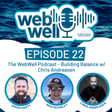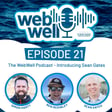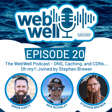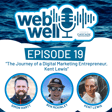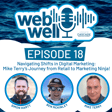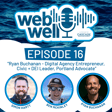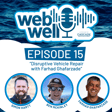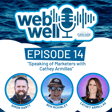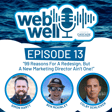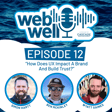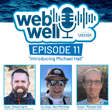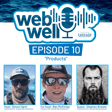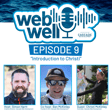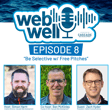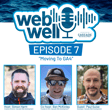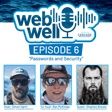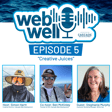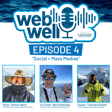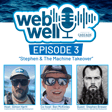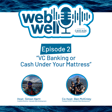
The WebWell Podcast E17 - The Journey of an Entrepreneurial Attorney, Bill Pierznik
Join us on The WebWell Podcast as we embark on a journey with Bill Pierznik, a trailblazer in the legal field and an entrepreneur at heart. From opening a law firm in the tech-fueled days of Portland, OR, to holding key leadership roles at companies like Jive Software and Act-On, Bill shares his incredible journey, insights, and the lessons learned along the way.
Dive deep into Bill's beginnings, from his college days to the decision of starting his own firm at a young age. Hear firsthand accounts of the fast-paced environment at Jive Software, his growth at Act-On, and his latest venture with Dave Hersh at the innovative startup law firm, Macro Law. Discover how Macro Law is redefining legal services through technology, automation, and a unique business experience, including the adoption of membership-based pricing.
But there's more to Bill than law and leadership. As a franchise owner of Restore Hyper Wellness, Bill explores another facet of his entrepreneurial spirit. He also shares his personal growth mantra of adding one new skill each year, ranging from swimming to Spanish, and his passion for Mesoamerican history, Mexican food, and long day hikes.
Bill offers invaluable advice for aspiring lawyers, entrepreneurs, and anyone interested in starting a services business in today's rapidly changing world of AI and automation. He emphasizes the importance of humility, networking, flexibility, and the art of knowing when to pivot.
This episode is not just about the professional milestones but also about finding balance, continual learning, and the individuals who have inspired Bill's life philosophy. Tune in for an inspiring conversation filled with actionable insights for navigating your path, whether in law, business, or personal growth.
See what Bill's up to online:
@billpierznik
www.macrolg.com
www.restore.com
Please send your questions or comments to webwell@cascadewebdev.com We look forward to hearing from you!
